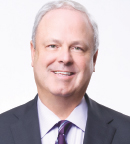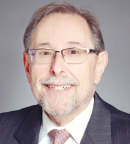One in four Americans say they incorporate cancer prevention into their daily lives, according to ASCO’s third annual National Cancer Opinion Survey, despite research showing that as many as half of all cancer cases are preventable. The survey found low levels of awareness of known cancer risk factors such as alcohol and obesity, as well as misconceptions among a substantial minority of Americans that artificial sweeteners and cell phones cause cancer in humans.
The survey also revealed that nearly 1 in 4 young people (aged 18–38 years) believe e-cigarettes are harmless and not addictive, and 3 in 10 think flavored e-cigarettes are less damaging to a person’s health than nonflavored varieties. In addition, 9 in 10 Americans say it is important for doctors and patients to take the time to discuss end-of-life care, but only 1 in 4 people with cancer have ever talked with their doctor about the subject.
The National Cancer Opinion Survey is a large, nationally representative survey conducted online by The Harris Poll.

Howard A. “Skip” Burris III, MD, FACP, FASCO
“Our survey helps us better understand Americans’ views on a range of cancer-related issues and exposes areas that are important to address,” said ASCO President Howard A. “Skip” Burris III, MD, FACP, FASCO. “This year’s findings raise concerns about the current state of cancer prevention in America and strongly support the need for more education on the topic beginning at a young age.”
This year’s national survey, commissioned by ASCO, was conducted online by The Harris Poll from July 9–August 10, 2019. It included 4,001 U.S. adults aged 18 years and older and an oversample of 814 adults aged 18 and older with cancer, for a total of 1,009 adults included who have or had cancer.
Cancer Prevention Knowledge and Incorporation
Although 6 in 10 adults (57%) reported being concerned about developing cancer in their lifetimes, only 1 in 4 (24%) said they care deeply about cancer prevention and incorporate risk-reduction strategies into their daily lives. On the other hand, a quarter of Americans (25%) believe there is nothing they can do to prevent cancer.

Richard L. Schilsky, MD, FACP, FASCO
“Tobacco use, diet, sun exposure, alcohol consumption, and other lifestyle choices can have a major impact on people’s risk of developing many common cancers or of cancer recurring,” said ASCO Chief Medical Officer Richard L. Schilsky, MD, FACP, FASCO. “While it’s never too late to make healthy choices, it’s most critical for young people to take action to reduce their cancer risk, since it can take decades for the disease to develop.”
Cancer Risk Factors Knowledge Gap
Eight in 10 Americans (81%) believe there is a lot of information available about what causes cancer, but most have difficulty discerning what is credible. Two-thirds (66%) said they are unsure which sources to trust for information about what causes cancer, and a similar fraction said it is hard to know the most important things to do to reduce their risk of getting cancer.
A minority of Americans are aware of lifestyle factors that increase their cancer risk:
- 36% realize obesity is a risk factor for cancer
- 31% recognize alcohol is a risk factor for cancer.
There are also misconceptions about factors that may cause cancer in people. For example, despite a lack of evidence:
- 28% believe artificial sweeteners cause cancer
- 16% believe cell phones cause cancer
- 9% believe caffeine causes cancer.
Americans are more likely to get information about cancer prevention online than from their doctor, with 24% saying they have searched the Web for information about how to reduce their cancer risk. One in five adults reported talking to a doctor about their risk of developing cancer (22%) or what they should do to reduce it (18%).
“We urge every American to have regular conversations with their physician about reducing their risk of cancer and other chronic diseases,” said Dr. Burris. “If people want to supplement these conversations with online resources, they should look for sources that have been approved by doctors, such as ASCO’s patient information website, Cancer.Net.”
Trusted information about cancer prevention can also be found through The National Cancer Institute and the Centers for Disease Control and Prevention. In addition, ASCO provides resources for physicians on cancer prevention at ASCO.org.
Discussions of End-of-Life Care
More than 9 in 10 Americans (91%) believe it is important for doctors and patients to take the time to discuss end-of-life care. However, a minority of Americans affected by cancer said they or their loved one have ever discussed end-of-life care with a doctor:
- 26% of people who have/had cancer
- 22% of people who have/had a family member or loved one with cancer
- 35% of caregivers to patients with cancer.
Many Americans are also not sharing their end-of-life wishes. Among those who have thought about end-of-life care (53%), one in four (25%) said they have never communicated their wishes to anyone, including family members.
“It’s critical to plan ahead for end-of-life care in the advanced stages of cancer or any disease,” said Dr. Schilsky. “Physicians and patients should discuss all of the available care options and develop a plan that reflects patients’ wishes and goals. This can ease the emotional [burden] and may even reduce the financial burden for patients and their loved ones.”
Review the full set of results from the ASCO 2019 Cancer Opinions Survey.

